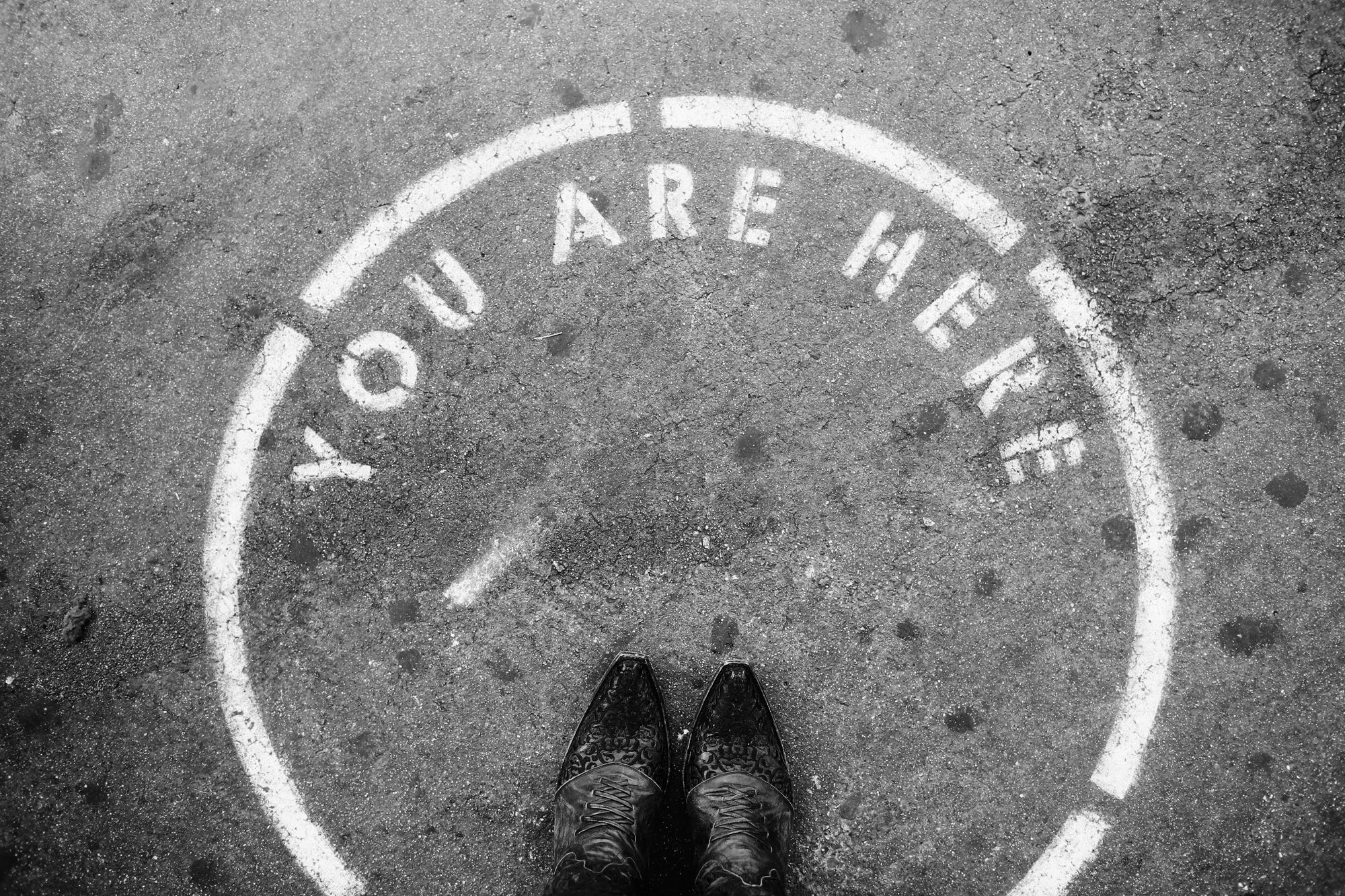7 reasons to start a business when it is not the right time

"I am leaving Sama" I said to my manager last September. Truth is, my job at Sama was probably one of the best jobs I had throughout my career.
Sama is on a mission to lift women and youth out of poverty in some of the most marginalized regions in Africa while providing dignified work in Artificial Intelligence that pays a living wage. I love the mission. And I love working at the edge of technology.
For the past five years, the company nurtured my thirst for knowledge in every possible way. Delivery. Team management. Finance. Operations. Sales. New product launch. Connecting with other amazing leaders in the space. Such a great company!
I also had time to spend with my husband and two-year-old daughter. I could support our family comfortably when my husband decided to quit his job two years back to become a fiction writer.
And there I was with a bigger, totally more twisted plan. Starting my own company but also leaving the household with no stable income for an unforeseen period. Putting some pressure on my husband who just signed his first book deal with a publisher. Looking straight at every fear I buried with my previous failed companies.
The decision from there was not easy but it got tangibly more complicated when my husband and I realized that we were expecting a second child, and that both were due roughly at the same time.
Naturally and rightly so, all my friends advised that I should set my plans to start a business aside, get back to that great job I quit, at least until things stabilized. And dive into the project when the time is right. Rationally, I agreed. But it did not feel right. Here's why I chose to still go on with my project despite that it appears to be the worst possible time.
1. Realizing that it's not about the idea, but the mission

"When I'll find a unique idea, I'll start my company". I remember saying this like a comforting motto. Reassuring. No idea, no business. Because then no risk, no failure, no loss. No effort. I can go home and watch Netflix after work.
Unfortunately, the idea still has not come to me. Or maybe many did, but after a few minutes of research on my iPhone, they were all already executed. So enough reasons to scrap the whole process and get back to watching Netflix.
Sweet and unsatisfying laziness. I thought about the AI space, since I was working in it. I surely have a few ideas I could turn into a business, since I am well aware of some of the problems in the industry. And if not a precise idea, some directions to follow and dig further. The issue is I don't want to build an AI company whose core mission is to solve AI problems. AI to me is a solution to a bigger problem, a cause that resonates with me. And maybe when I’ll know about a space, at least as well as the AI space, I’ll see what's not working so well. I’ll see multiple business opportunities. So what is this space and this cause that deeply resonates with me?
I looked for answers in my day-to-day life, what I do when I am at work, what I do in my free time, what I do when I am around friends.
It is no secret to anyone who knows me that a lot of my life revolves around food, how it is produced, how it impacts our health, and how I can make so damn sure it tastes good. I'm not born with an acquired taste for vegetables, so I work them out properly so they end up tasting great. On any given day, I typically spend two hours on average thinking about what I am going to eat, its nutrient content, and prepare it.
As a proper millennial, I am conscious of my carbon footprint, the planet balance and issues around climate change. So I deeply care about how food is produced.
It turns out that our current food system is responsible for 25% of carbon emissions. Added to that, we need to double the amount of food produced by 2050 to sustain 10 billion people. Our century is the first one to give rise to type B malnutrition, too many calories, both obesity and malnutrition at the same time. Calories matter, but the right calories turn out to matter even more. And while this used to be a privileged issue, low and middle-income countries are suffering from this today too.
I don't have the perfect idea. But I have a space that I find interesting enough to test a few ideas on. And that's where I'll start.
2. Understand the upcoming challenges

Any entrepreneur will tell you that starting a company is hard, very hard.
There are so many reasons it can fail. Team issues, poor product, no market fit, no cash or no funding, all kinds of business issues, legal, pivots, you name it.
Yes, sure, but despite all of that, I will succeed! Why? Because I am hungry for success, I am so motivated, I have a high working capacity, I learned so well from others, I, I, I.
Fortunately, I am starting this journey with a head start of 2 startups projects that failed so miserably they did not even make it to the company registration stage. Disagreements between co-founders. Different expectations of the work to be done. Developing a product before having clients buy in. Frustration, disappointments, bitterness.
The hard reality hit me. My drive and my will have been of little help.
Add a second baby into the equation. More stress, more attention needed, less sleep, fewer opportunities for relaxing.
Those two situations have however something in common. I both have some experience with the associated challenges.
And I am stepping into the entrepreneurial life with a second baby with confidence. Because experience is worth 100 books. It gives me the opportunity to discover who I am and how I react to stressors. To reflect upon it. To anticipate. To build resilience. To see past difficulties. To have perspective. Hopefully, I learned something in the process and won't repeat the same mistakes.
3. Plan the help you’ll need

What struck me during my previous experiences is the loneliness that came with entrepreneurship. I came right from Philips, a company with more than 150,000 employees at the time, giving endless opportunities to meet, brainstorm, learn from and socialize with colleagues.
As an internal consultant, I got to meet colleagues all over the world. With a little downside: I did not need to put any effort into building a network outside the company. Why should I?
And here I was thereafter, full of hope, working on a startup idea with no one else than my co-founders. Limited options to brainstorm, learn from others or see the world with a different lens. I had no network to open potential doors to find the first customers or investors. Cold outreach was my only option.
It is different today. For once, I already decided what problems I want to work on. So I looked for networks of support and found the startup builder Fresh Ventures through a connection. I investigated them in and out. What expertise do they have, what are their values, what are the type of ventures they are looking to build, who are their partners, who are in their network, who are their investors, who founded them. I signed with them because they were a good match with both my expectations and my needs.
And what about family life? Support is more than important here too. Sure, my husband supports me in creating my company, not “later” but “now”, but he also has great ambitions. Far beyond the (amazing!) ambition to support his wife. We both know how the difference of expectations impacted our relationship when our first baby was born. That it took some time to know ourselves when it was just not about us anymore. To understand why the other react this way.
This time we decided to stay one step ahead with documenting our expectations and negotiate our mutual needs upfront. Plan check-ins regularly to see if our expectations needed to be revisited. That way we both feel more confident and equipped to be a team for what's in front of us.
4. Set up a financial plan

Founders need to accept that for an unforeseen future there won't be a stable flow of money coming in monthly. Likely, this will roughly be zero. Understandably, we wanted to know how much we should plan to save to sustain no income.
My husband and I went on an exercise of calculating our monthly spending per category retroactively for the last year. Warning there, when you look at your spending, every month has a special exceptional something that uplift total expenditure to unforeseen amounts. Well exceptional or not, when it happens monthly, it becomes a recurring expense.
We redesigned our budgets per category with reasonable but also realistic amounts. We realized that over three-quarters of the budget expenses of our new monthly allowance are irreducible expenditures, namely the apartment's mortgage, daycare fees, and health insurance. So if shit hits the fan, we know exactly what kind of giggle room we have left.
Then we experimented with this budget for almost a year while I still had a stable income. We made some adjustments. We added a few categories we did not realize we needed. We tested again. Up until the moment when we both felt that this was doable.
We added a 10% contingency and divided the total in half. That was the minimum I needed to save to have a year's runway without income.
With that amount saved later on, came the confidence that we should be ok for that span of time.
5. Start as soon as you can or build business experience?

There are two schools of thought about previous business experience.
The first one advocates "start as soon as you can" and learn on the go. Young graduates start their own business straight after school with great ideas, lots of hard work. Some succeed, most fail but only to do it again.
The second one champions that expertise and experience increase your chances of success.
Choosing the right way is for me a matter of personal preference. Is it the thrill of not knowing what's ahead and working it within the specific context at the time? Or is it the comfort of building on previous experience when possible?
My startup failures made me choose the second one.
I was always careful never to specialize too deeply in the jobs I held. Always moved sideways. I consulted in IT, supply chain, and lean manufacturing in my first job. I improved and audited systems, procedures, records, across Sales, Supply chain, Marketing, Consumer care, and HR in my second job. I managed a 600 FTE service delivery team in my third job. I raised debt, venture capital, opened subsidiaries abroad, managed treasury, forecast, and budgets in my fourth job. I closed and managed new sales channels, new offerings, and strategic partnerships in my last one.
With this diverse experience behind me, I feel more equipped than ever to navigate the rollercoaster of the startup journey. And all the different jobs that come with working in a small team.
6. Plan for the worst-case scenario

Well well, and then. What if none of this works?
What if I run out of money?
What if no one wants to buy my product or service? And then pivot until I end up running out of money?
What if I can't find the right partner? Starting on my own in hope of recruiting later? Still don't manage to recruit properly? Thus come up with a crappy company and end up running out of money?
What if I fail so miserably that I need to hide with shame for the rest of my life?
But so what? I'll find a job. I'm pretty sure that after a year of what would have felt like a lifetime of struggle and misery, I'll be happy working a job that pays and where I feel I'm needed.
7. Recognize that there is no right time

Every year there's something in the way. It's been 6 years now that I'm planning on starting my company:
Year 1: After 2 startup idea failures, I am taking full-time employment in San Francisco. Let me breathe a bit, not the right time.
Year 2: My finances are terrible, I need to start saving. I'm taking on a new even-better job. It's definitely not the right time.
Year 3: I'm getting married and we don't have a permanent visa in the US. I don't have enough savings. Still not the right time.
Year 4: We don't have a visa anymore so we return to Europe. I have to rebuild my network. Plus I'm pregnant. Plus my husband quit his job to become a writer. What should I say? Not the right time.
Year 5: I'm discovering motherhood and re-adapting to a new lifestyle, plus I don't have any business ideas. Not the right time.
Year 6: I found a new exciting opportunity, looks like the perfect job! Let me do that first.
Year 7: I'm all set, let's go! Erm, I'm pregnant again. Screw it! I'm doing it.
That's about when I realized that the stars are not working against me in my plans. There is just no perfect time, there will always be something in the way. Maybe now is the exact right moment.
Where to go from here (aka Conclusion)

And so, my decision was made. Just the right decision. It turns out that starting my own business is not about courage but a very rational plan.
I hope my experience will help you think about what's important for you in starting your own big project. Look at the situation as it is and find what's missing - if anything.
Look where you come from, what you learned along the way, and how this gives you the strength to give it a try. Think about your fears, about the worst-case scenario, address the “what if”.
If you're like me, you might have been postponing working on a new project or a company for a while. Always with great reasons. Maybe it's time to stop, look back, and see that now is not that bad after all.
Thanks for reading! I never thought I would blog, but it would have helped me to read this a few years ago, and helps me structure my thoughts. So I’m planning to continue doing it, and take you with me on the next stages of this adventure. I will write about the different subspaces at the intersection of food, agriculture & sustainable impact. Drilling down in the spaces, I will talk about the opportunities for business ideas. Stay tuned!

